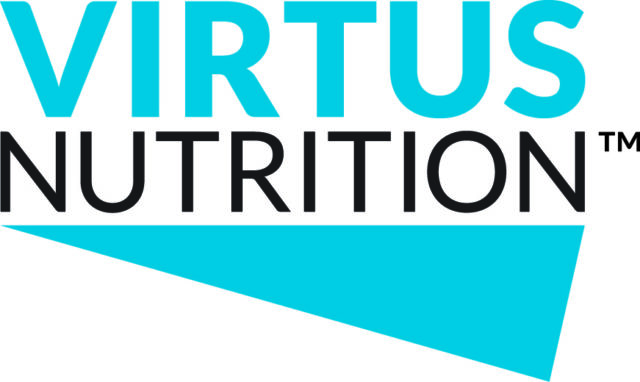I’m sure you may have heard a farmer say, “Someday this farm will be his,” or “Someday we will get to the lawyer’s office, but we have work to do.” My sister, Barbara Edie, wrote the headline, “Someday is not a day on my calendar,” when she relayed the memories of an active 1988 spent with my other sister, Grace, who died tragically that year. Barb’s resolve was to never put things off and not let “someday” creep into her thinking.
Many farm folks hope to take time off “someday.”
Hugh Culver, author of Stop Procrastinating Today, explains the word procrastinate is formed from two Latin words – pro, meaning “forward,” and crastinus, meaning “belonging to tomorrow.” So procrastination is the act of putting something into tomorrow and, of course, it suggests that it is always “in tomorrow” – so never gets done.
Why do we put things off? Why delay plans to make our farm businesses healthier?
My speaker friend Pierrette Desrosiers says there are five main causes of procrastination.
1. A lack of planning and vision
2. Perfectionism
3. A rebellious spirit
4. A quest for adrenaline, liking to work under pressure
5. Don’t like doing a particular task, acting like a “spoiled child”
Culver claims, “You are not a procrastinator. You always get more of what you focus on.” He calls us to re-frame our decision-making and start developing better decision-making habits.
In farm families, I sense there is a huge sense of being overwhelmed, so people get stressed and just shut down. When I arrive as a coach, we work to make an action plan that is realistic and consider the steps along the way. For example, you know you need to update your will.
First step, find the old copy. Second step, call the lawyer for a first appointment. Third step, talk to your spouse and then book time to converse with your family. Now is a good time to have some of these important conversations, even as you are working side by side.
“Focus and execute” was a mantra that caught my eye and has become a common expression for me. To establish a plan, you need to think about what goals you want to reach. Break things down into steps and work out the timelines for execution. Deadlines work for me.
If I post them in my computer calendar, I can keep them top-of-mind and move them along. The reward for me as a writer to meet deadlines is that I get paid. What rewards can you build into the projects that you are avoiding?
One summer the junk, (i.e., steel, augers, etc.,) needed to be removed from our bush. My husband encouraged all the employees to participate in the “load the flatdeck project.” Each employee’s reward for this “not-so-fun” cleaning job was to have the money from their load, a little added incentive not to keep stashing old equipment in the trees.
Take the first step. Make the phone call for an appointment with the painter, lawyer, carpenter, plumber, doctor, etc. Moving it out of your brain and starting to take action will beget more action.
Decide to let go of perfection and just start the project. Weight loss is a classic procrastination issue, and farmers who are riding equipment, eating pie with lots of ice cream and avoiding their doctors can relate to feeling bad about not dealing with their health.
Culver suggests that each decision is either doing or avoiding, much like a scale. I am stepping on the scale, so I know my weight is not good, but what I am avoiding is tracking my portions. I also should be avoiding pie with ice cream.
Should. Counselors use a phrase, “don’t should on yourself.” Rather than saying, “I should talk to my son and his wife about their vision for this farm,” say “I am going to start having conversations about what is working for our family farm team and what needs to change.”
Think about what time of day you have the best energy to do the hard work. As a writer, I like to have a two-hour block of quiet time in the mornings. Once I get “in the zone,” I don’t answer the pings of my texts or the phone. What would it look like if you took 90 minutes this morning to tackle a tough project you have been putting off?
Would it help to have a buddy? Our seed plant office had a lot of mud this spring after 8 inches of rain and lots of traffic. When I started to try to find the floor, it did my spirit and energy level a lot of good to have a cleaning buddy. My mom always used to say, “Many hands make light work.”
Sometimes the work we are avoiding may be more fun with a team approach. I haven’t been able to convince my family on this one with weeding the garden, but start that kind of training with young children and you may have better results than I did. You might also just need some better tools for the job, like a tiller, a hedge trimmer or a Dutch hoe.
Stephen Covey wrote about doing the urgent things, not the important things. Take some time soon to develop what Patrick Lencioni calls a “rallying cry” for getting things done.
Let me know what project you completed, and I will send you a copy of my e-book, Planting the Seed of Hope – a reward for you. PD
Elaine Froese farms in southwestern Manitoba and coaches families across North America. She has been awarded the Certified Speaking Professional designation. Email her or call (866) 848-8311 to claim your reward.

Elaine Froese
Farm Family Business Coach




